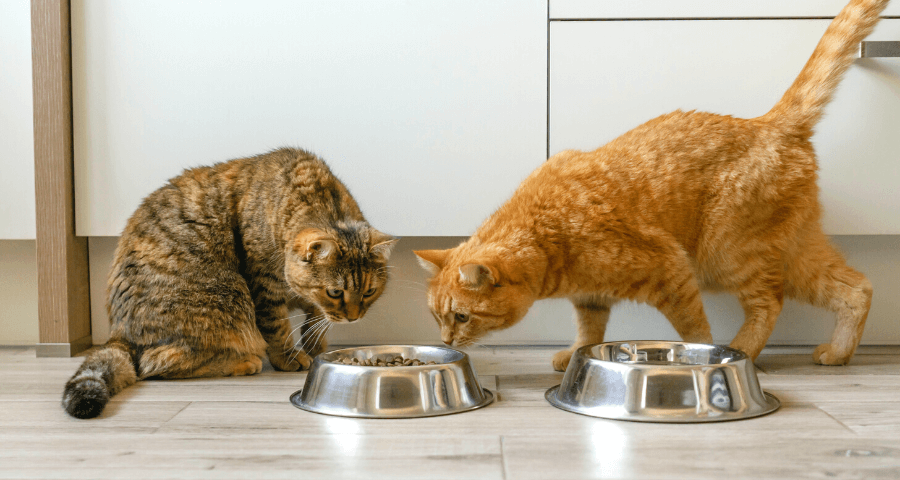“Sensitive stomach” = special diet?
Does your pet have a ‘sensitive stomach? That is, do they intermittently show signs of vomiting and/or diarrhoea?
There are many potential causes of a sensitive stomach, ranging from food intolerances or allergies to inflammatory bowel disease. There are also other gut problems that can cause intermittent tummy upsets, such as chronic infections. Additionally, some diseases elsewhere in the body, such as kidney disease, can affect gut health.
Therefore, if your pet is showing regular signs of tummy upset, it’s best to consult us for advice. Pets showing weight loss, frequent or severe gut upset, or other symptoms of unwellness are best to have their symptoms investigated with diagnostic testing, as are very young animals. Testing may include analysis of faeces, blood and urine testing, and abdominal imaging such as x-rays or ultrasound. In some cases, we may require intestinal biopsies to get an answer.
In some pets, prescription veterinary diets can serve as both diagnosis and treatment, if we suspect a food-related issue. Prescription digestive health diets can include:
Digestible diets – these diets help settle simple tummy upsets or animals with mild ‘sensitive’ stomachs, and generally work by providing nutritional sources that are easily digested, plus an altered fibre content to support healthy gut bacteria, and other gut-settling supplements or vitamins
Low-fat digestible diets – in addition to the above benefits, these diets are particularly low in fat to benefit animals who suffer from pancreatic inflammation
Hypoallergenic diets – these are designed for animals who are allergic to certain food proteins, and work by providing your animal with altered proteins or new types of protein that are less likely to trigger your animal’s gut inflammation
So, if your pet suffers from an upset stomach, book an appointment with us today – there are a range of recommendations we can offer to help!

